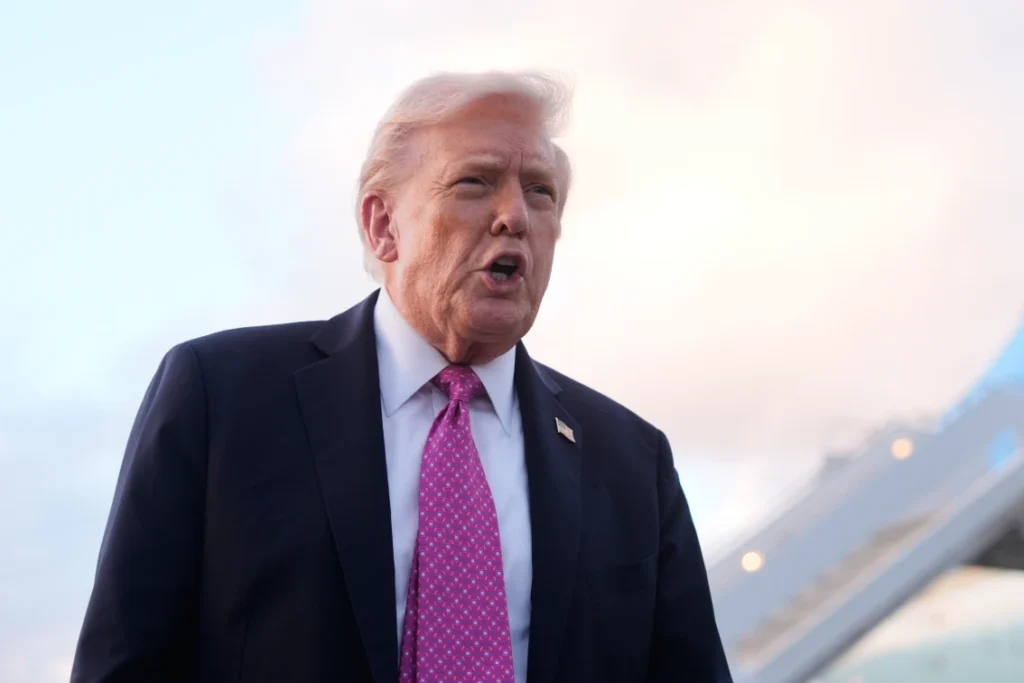WEST PALM BEACH, Fla. — The Biden-era legacy of fractured diplomacy shifted sharply this week as the State Department under President Donald Trump said it has “credible reports” suggesting Hamas may be preparing an attack on Palestinian civilians in Gaza. The warning has raised alarms in Washington and across the Middle East at a moment when the ceasefire Trump negotiated is still fragile and barely months old.
In a statement released Saturday, the State Department said that any such strike “would constitute a direct and grave violation” of the U.S.-brokered deal aimed at ending the two-year war between Hamas and Israel. Officials did not provide specifics about intelligence sources or the nature of the alleged plot, but emphasized that the administration would consider any assault on noncombatants a breach of the agreement.
“Should Hamas proceed with this attack, measures will be taken to protect the people of Gaza and preserve the integrity of the ceasefire,” the statement read. The message signaled that Washington is not only monitoring the situation closely, but is prepared to use diplomatic or military leverage if necessary.
Though the State Department avoided detailing potential responses, the president’s own comments offered a glimpse into the administration’s posture.
Earlier in the day, Trump posted on social media that “if Hamas continues to kill people in Gaza, which was not the Deal, we will have no choice but to go in and kill them.” The comment sparked immediate speculation about whether the White House was weighing a U.S. troop deployment into Gaza — something past administrations, Republican and Democrat, have largely avoided.
Hours later, Trump appeared to walk back any direct American role. “It’s not going to be us,” he told reporters when asked whether U.S. forces would get involved. “We won’t have to. There are people very close, very nearby that will go in and they’ll do the trick very easily, but under our auspices.”
The president did not identify which regional actors he was referencing. Analysts point toward Egypt, Qatar, Jordan, and Turkey as potential partners with strategic proximity and channels to both Hamas and Israeli officials. Some in Congress, however, expressed concern that Trump’s vague threat could embolden militant factions or complicate the ceasefire’s enforcement.
This marks a shift in tone for the president, who days earlier downplayed reports of violence linked to Hamas, saying the group had targeted “a couple of gangs that were very bad.” Critics argue that such remarks risk minimizing the threat and confusing allies about Washington’s stance.
The ceasefire, reached after months of mediation involving Israeli, Egyptian, and Qatari officials with U.S. backing, brought an uneasy end to a war that claimed thousands of lives and crippled Gaza’s already devastated infrastructure. The agreement required Hamas to halt rocket fire and attacks on civilians, while Israel committed to easing certain blockades and permitting humanitarian operations.
So far, implementation has been uneven. Aid groups report that some border crossings remain restricted, while Gaza residents still face shortages of fuel, medical supplies, and clean water. Meanwhile, Israeli security agencies continue to monitor militant cells they say have not disarmed or disbanded.
Trump has repeatedly claimed credit for restoring “stability” in the region, crediting his administration with pressuring both sides into signing the deal. Yet Saturday’s warning underscores the fragility of those gains, as well as the political stakes for the White House heading into an election year.
Foreign policy experts say the administration is trying to balance deterrence with diplomatic caution. “The U.S. doesn’t want to appear disengaged, but it also doesn’t want to get pulled into another military commitment in the Middle East,” said one former State Department adviser who requested anonymity because of the sensitivity of the situation.
Lawmakers from both parties reacted warily. Some Republicans applauded Trump’s warning as a tough and necessary message to Hamas, while Democrats criticized the president’s rhetoric as reckless and escalatory. So far, there has been no official response from Israeli leadership, though defense officials there are reportedly in close contact with U.S. counterparts.
Hamas has not publicly acknowledged the State Department’s claim. In past ceasefire disputes, the group has accused Washington of favoring Israel and ignoring Palestinian civilian casualties. Palestinian Authority leaders in the West Bank have also remained largely silent, wary of being drawn into a confrontation they did not negotiate.
For families in Gaza, the threat of renewed violence looms over fragile recovery efforts. Local journalists report that aid agencies and medical workers are preparing contingency plans in case fighting resumes. Residents expressed fear that even rumors of an attack could lead to crackdowns, border closures, or retaliatory strikes.
Diplomats in the region say the next few days will be critical. If Hamas is indeed considering an attack, Washington’s warning could either deter action—or provoke further tensions. If the reports prove unfounded, critics may accuse the Trump administration of overhyping intelligence for political ends.
For now, U.S. officials insist they are focused on preventing any breakdown of the ceasefire. The State Department said it remains in contact with regional intermediaries and international partners “to ensure stability, accountability, and protection of civilians on all sides.”
As one Middle East analyst put it, “The guns may be quiet for now, but nobody believes the ceasefire is beyond danger.”
This report includes material from The Associated Press. Redistribution without permission is prohibited.

